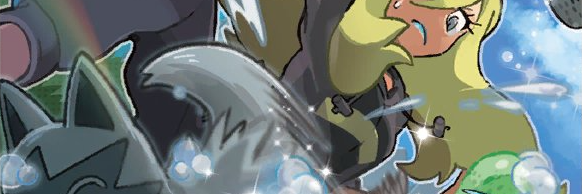
anyway shipping discourse is wild these people never phone in to say “hi can you please explain to me whether this zine will allow stories which glorify capitalism/colonialism/the destruction of the environment”
the person i’m subtooting says « You can’t say ‘it depends on the portrayal’ when there’s some things that can’t be portrayed properly because of what the dynamic is as a whole » and they’re so close and yet so far
there are people for whom “comfortable” representations in fiction have never existed
there are people for whom a “comfortable” representation in fiction never could
if i were running a fanzine and somebody messaged me like “I don't necessarily feel comfortable joining this zine if stuff like X/Y or W/Z is allowed” i think i would respond like “thank you for your interest; i highly encourage you to take the time you would have invested in this zine reading actual books”
got tired of not being able to just drop a link to e·g https://go.KIBI.family/Fortune/?/Tendencies/vividly_remembered_promises in chat
finally added permalinking to my ./Fortune/: https://github.com/marrus-sh/marrus-sh.github.io/commit/5404bf743ce2756cae57473a7f82c062318d08aa
this post explains better than i can the principles regarding the #GLAM-adjacent and Linked Data–related work i have done over the past few years, down to why i publish my webpages as RDF/XML+XSLT instead of using a static site generator
« We need to develop the practice of thinking about our tools as layers of components where those components that can be shared are simple enough for someone at a different instituion, someone who is just as busy and distracted as you are, to quickly understand what something does or doesn't do.
The emphasis here is on quickly because the reality is that other people will be looking at whatever you've shared over lunch or on the train going home. The emphasis needs to be on quickly because the ultimate goal is to have something that can be understood with sufficient ease that it can be filed away to be remembered at some later date when there is a need to address a specific problem. If the goal is to build a common kit of parts that can be re-used across the cultural heritage sector the first step is to make awareness of those tools, and their conceptual boundaries, a practical and tangible reality. »
« Everything I've described so far has been built using the same raw materials that we've made available for you to do something with. This introduces a non-zero cost in the build process for the public-facing museum efforts but we believe it's worth the cost.
First of all we want other people to build new interfaces and new services, new "experiences" even, on top of our collection so this is a way to keep ourselves honest. If we can't build something with this stuff why should we imagine you will?
Second, we want to ensure that the data we release and the manner in which it is published, is actually robust and flexible enough to engender a variety of interfaces and uses because we need that variety. It is important to the museum because I don't believe there is, or should be, only one master narrative in to the collection. »
« I am not suggesting that we return to the web of the mid-1990s with its grey backgrounds and blue and purple links. I am suggesting however that we ensure that web is our guaranteed failure scenario, should it ever be necessary, and that we layer everything on top of it.
This is as much about safe-guarding against other people's browser decisions as it is giving the cultural heritage sector the freedom to engage with the walled gardens of platform vendors, without that participation turning in to a black hole from which it is impossible to escape. »
« Make the web your baseline, in particular a web of documents and links rather than one of interactions or transactions or experiences. This is the profoundly boring web but that is the point. It is the web that, structurally, has a better guarantee of outlasting the machinations of third-party vendors. »
« Absent from all of these discussions is anything like the vision that Tim Berners Lee espoused for the web as an open platform, free of licensing constraints. One that was simple enough to guarantee it could be implemented and operated with limited resources. When we talk about virtual worlds we are not only talking about walled gardens governed by the whim and folly of shareholder value. We are also talking about infrastructures that only a few enterprises are in a position to operate. »
- Header
- Delinquent (BREAKpoint 98a) by Megumi Mizutani
Administrator / Public Relations for GlitchCat. Not actually glitchy, nor a cat. I wrote the rules for this instance.
“Constitutionally incapable of not going hard” — @aescling
“Fedi Cassandra” – @Satsuma
I HAVE EXPERIENCE IN THINGS. YOU CAN JUST @ ME.
I work for a library but I post about Zelda fanfiction.
For the time being, this is mostly a mirror of <https://status.ladys.computer/>. Want to get in touch? E·mail me!
